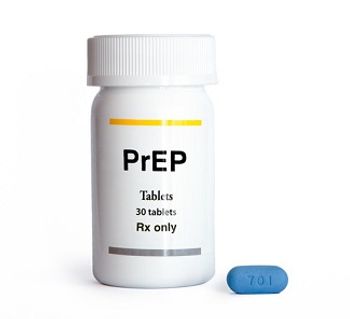
A recent phase 2 study showed favorable results for oral ibrexafungerp, a novel beta-glucan synthase inhibitor, as a step-down treatment for invasive candidiasis.
Jonna Lorenz is a freelance journalist with more than 20 years of experience. Her background is in business and health care news, including reporting, editing and research for newspapers and websites.

A recent phase 2 study showed favorable results for oral ibrexafungerp, a novel beta-glucan synthase inhibitor, as a step-down treatment for invasive candidiasis.

Deeper understanding of how Yersinia plague pathogens impede the immune system could help investigators develop targeted treatments for these bacterial infections.

CDC has released a complete summary of AFM cases in 2018, urging clinicians to recognize symptoms, collect specimens, and report suspected cases.

The use of high-dose daptomycin in combination with a β-lactam antibiotic to treat enterococcal bacteremia is supported by pharmacodynamics.

Long-acting reservoir-style PrEP implants could help solve adherence issues.

Interest in on-demand HIV pre-exposure prophylaxis may be increasing, according to a survey in Australia.

Getting PrEP into the hands of those who stand to gain the most from it, including women in sub-Saharan Africa remains a challenge.

As little as 10 minutes of ocean swimming can replace the skin microbiome, and bacteria can persist on skin for 24 hours after swimming.

Bacteriophages found in kitchen sponges may hold promise for the treatment of antimicrobial-resistant bacterial infections.

Investigators identified a patient in the US infected with Salmonella resistant to colistin, the drug of last resort, raising concerns about the spread of multidrug-resistant microbes.

A new study found that infants fully vaccinated against rotavirus were 33% less likely to develop type 1 diabetes later in life than children who didn’t receive the vaccine.

Bacteria carrying tandem Guiana extended-spectrum β-lactamase enzymes may be an emerging threat in the United States, a new study suggests.

A recent study found some improvement in bone density after PrEP discontinuation along with some lingering concerns, particularly among the youngest participants.

Failure to fill prescriptions is a common issue among adolescents diagnosed with sexually transmitted infections in emergency departments, according to a new research letter.

Meeting goals to eliminate HIV, viral hepatitis, and sexually transmitted infections by 2030 will require accelerated efforts, according to a progress report from the WHO.

Investigators at the University of Pittsburgh identified 4 sepsis phenotypes that could help pave the way to targeted treatment options for the disease.

Individuals at a higher risk of contracting HIV showed greater adherence to PrEP and moved toward less risky partnership types over time.

Diversity of Group A Streptococcus strains has frustrated vaccine development efforts, but investigators have taken a step closer to finding a common gene signature in nearly all strains.

In the first-in-human trial of the replication-defective HSV529, the vaccine was well-tolerated and elicited antibody and T-cell responses in HSV seronegative adults.

Long-term care facilities could reduce hospitalizations for pneumonia and influenza by hiring more registered nurses and licensed independent practitioners, increasing staffing hours, and employing higher quality care practices.

The likelihood of using PrEP is significantly influenced by recommendations from health care providers and concerns about side effects, according to a recent study of heterosexual individuals in Philadelphia.

PrEP strategies could be most effective when targeted to demographics at the highest risk of infection including young black and Hispanic men who have sex with men.

Lack of HIV awareness and misconceptions about PrEP may be barriers to implementing prevention programs among female sex workers in China, according to a recent study.

Treating men with UTIs for longer than 7 days shows no clinical benefits and is associated with increased risk of recurrence.

A large variance in how family physicians prescribe antibiotics couldn’t be explained by patient characterizations, suggesting a need for improving interventions in antimicrobial stewardship programs.

Understanding barriers and facilitators of PrEP could help improve adherence among young men and transgender women of color, a recent study found.

A third dose of the measles-mumps-rubella vaccine may be a safe and effective response to concerns about waning immunity to mumps among young adults.

An intervention involving improved communication and antibiotic timeouts in nursing homes reduced the days of antibiotic therapy, according to a recent study.

Vaccination against respiratory syncytial virus before birth or a dose of monoclonal antibody at birth may address an increased risk of hospitalization for RSV-associated illnesses in infants exposed to HIV.

Missing visits is a warning sign that patients may discontinue PrEP, according to a recent study that found only 38% of participants remained in treatment over 12 months.